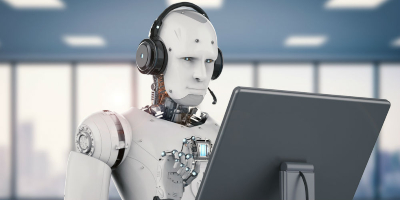Book Review: Digital Marketing in an AI World
Some would say we’re not significantly affected by the media we consume. I don’t claim to be one of them. After watching a lot of the movies being put out these days that show futuristic visions of how artificial intelligence might be incorporated into the world in the future, I can’t help but wonder how it will affect my life and career in the PPC industry.
Are we all going to lose our jobs?
It turns out that I’m not alone. I’ve noticed many people in my position have expressed the same concerns, especially as we see more and more tools being rolled out that “take away” tasks we once did, leaving us to wonder if one day ALL of the tasks we do will be taken over by machines and we’ll be completely replaced.
If you’re a PPC manager, is this going to happen?
If you’re an agency, will you no longer have a market for these services?
If you’re a marketing manager or business owner, will you no longer need your PPC campaigns to be managed by someone? Can you simply give the machines your budget and goals and let some kind of “smart” system take care of the rest?
These are all questions that are addressed in the new book Digital Marketing in an AI World by Frederick Vallaeys; ex-Googler who worked on the Google Ads system in the early days and is the co-founder of the PPC automation tool Optmyzr (disclaimer: we are a customer).
People are still important
Frederick’s main point is that yes, managers and agencies still have ultra-important roles in the success of PPC campaigns for businesses. Essentially, he pushes the idea that humans and machines working together will always be more powerful than machines working by themselves. But, the meat of the book lies in his explanation of what machines and humans are each good at, and how they need to work together to maximize results.
Ultimately, even where machines can take over because they’re more efficient with certain tasks, humans are still needed to work with the machines in different capacities. Frederick breaks it down into 3 of them…
Doctor
Machines can tell you that something’s wrong. But they can’t tell you how they came up with a problem, why there’s a problem, how big of problem it is, and what to do about it. Like a doctor, a human can diagnose problems, offer prescriptions, and explain processes.
Pilot
Machines can “fly the plane” so to speak in certain areas. But, they can’t make good decisions when trouble arises or conditions change quickly. Like a pilot, a human can vet systems to make sure they’re set up correctly, monitor them to make sure they’re working correctly and steer out of trouble when things go awry.
Teacher
Machines can process very quickly. But, they can’t decide what factors to use for each business.
All in all, there are just certain things essential to the success of PPC campaigns that machines can’t do (and won’t be able to anytime soon).
How we should respond
Settling the issue that PPC managers are still highly valuable and needed (yay!), Frederick jumps into how managers and agencies should respond to this fact.
For account managers, he encourages making yourself an expert at fulfilling the 3 roles described above, as well as developing skill sets that machines can’t replace. If you become an expert with specific platforms, tools, subjects and skills that machines can’t replace, you’ll be an invaluable asset.
For agencies, he encourages developing a unique position in the marketplace by working with PPC tools in unique ways, and maybe even building them. He also offers advice on the types of employees to hire given the rise of machine learning – people who have a great attitude and are able to follow processes well.
Overall, the book gives a great overview of the topic of machine learning in PPC and how the roles of managers, agencies and advertisers are changing and what you should be doing to evolve in the ways that will be needed in the near future. No matter which of these roles you play, the book is well worth the investment as it will spark ideas about where you should be focusing your professional growth going forward in whatever role you play in the space.



